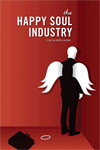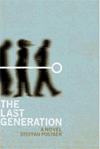Wheels Off. Tire Fire. Burning Bridges. All The Cliches…
January 21, 2021
Continued from previous post…

You began acting callously and with impunity. Courting the trade press, you would say whatever came first, seeking credit and taking it. You then collected these stories in a shoebox, like scalps. The more awards you won the more you took winning for granted. You expected victory. When you got a substantial raise you asked for stock in the agency. You demanded monster bonuses. And got them. No title was big enough. Executive Chairman? You weren’t even sure what that meant. Put it on the fucking business card.
Sure, you created bridges but you began burning them as well. Whoever could help you was a loyalist. Everyone else was simply in the way. Always a competitive field now became ruthless. You made enemies, inside and outside your company. They were just jealous, you thought. And did it matter? Tables turned they would treat you the same as an opponent. Or so you believed.
In the eye of this storm a moral compass was useless. Drugs and alcohol became your closet allies. Feeding your ego. Telling you full speed ahead. Cunning, baffling and powerful! They would deliver you to the Promised Land. Back to that feeling you once experienced by the elevators. But of course it was all an illusion, their siren song leading you out to sea alone in a tempest. You would not be the first captain to have crashed upon the rocks.
Your hands trembled in a meeting. So you folded them under the table, hoping no one would notice. You perspired so you brought an extra shirt to the office. You ran for miles along Lake Michigan. At the gym, you tried to work out what was wrong. In the steam room you couldn’t see what was happening. Fear crept in where confidence once reigned. You took Valium and Xanax, along with the drinking.
The wheels were coming off.
For all your hubris it was this obsession with work that would save your life. When you realized your job was at stake, then and only then, you decided to quit. Not for your marriage or your family or even your health. Those lines you’d crossed a long time ago. You’d mortgaged most of your relationships. Your wife was in denial. Your father had written one of his letters. None of that mattered. The great copywriter and rainmaker you were not willing to lose.
In rehab, the group leader, himself a former addict, told you that maybe an advertising career wasn’t in your best interest. That it threatened your sobriety. He warned its venal culture would only suck you back in. You spitefully replied that you made more money in one week than he did all year. Quit your job? Unthinkable. Keeping it was why you’d stopped drinking in the first place! Sick as you were, this had been the most lucrative time of your life. You’d made over a million dollars. Losing all that for something as ephemeral as serenity? Please. What you did not tell the social worker was that you feared he was right.
Riveting spots for The Meth Project by Darren Aronofsky transcend ‘scared straight’ strategy.
November 9, 2011
.
Before you look at the following commercials for The Meth Project, shot by Oscar-winning director, Darren Aronofsky (Requiem for a Dream, The Black Swan) brace yourself. For these are disturbing portraits -one of a man and the other a woman, barely adults, caught in the final grip of their drug addiction, doing the unthinkable: in his case exchanging sex for money, in hers, suicide.
It’s not that these spots are breaking new ground; they are not. The “scared straight” strategy is as old as “Say No to Drugs.” But there’s something about this campaign from the Organic agency that gripped me beyond expectation.
Perhaps it’s the voyeuristic nature of the work? In one we are in a bathroom while an hysterical mom tries to save her daughter from committing suicide. In the other a boy sits down on a seedy hotel bed as this anonymous dirt bag lasciviously takes off his belt.
The realism is starkly disturbing, and for this I credit Aronofsky. These films are not big. They are not sensational. We are in small, desperate places. Things are just happening: a girl is letting water run over her cut wrists. The boy takes his shirt off in preparation for God knows what… The message is simple: this is what happens when methamphetamine takes over your life. You find yourself doing things –despicable things- you would never, ever have imagined doing.
In the end, it is the actor’s indifference that is most scary. The girl might as well be washing her hands, the boy going to sleep. Terrifying.
On a professional note, I admire these films for not coming off as awards show bait. So many pro-bono ads (good and bad) look like they’re being made for the primary purpose of winning creativity prizes. Not these. I don’t feel the ad agency and neither will the intended audience. In my opinion, that hardly ever happens. Bravo.
Whether one considers addiction a disease or a lack of will power the fact is it takes over the user like a fatal attraction, until nothing else but his or her drug of choice matters. Unlike depressants, painkillers or sedatives, Meth is an upper that drives the user to bliss and then batshit, often the very first time. The voices in a meth head’s head come quickly and loudly, pushing away all rational thoughts. Coming down or “tweaking” is even worse. It’s a cheap batch of dirty chemicals that has no equal… crack’s crazy uncle.
If these particular films reach their audience –and I truly hope they do- they will change lives; I’m convinced of that.
(For the sake of argument, I should add that there are numerous spots for The Meth Project on You Tube. In my opinion none are as strong as the two captured here.)
Roger Ebert reviews his 30 years in Alcoholics Anonymous. (Addiction in advertising: How prevelant is it?)
August 31, 2009

Thumbs up, one day at a time
Well-known, Pulitzer-Prize winning film critic, Roger Ebert recently published a lengthy column on his 30-year membership in Alcoholics Anonymous. You ought to read it, if for no other reason than it provides a rare glimpse into how the AA program actually works. It’s a fascinating and brave piece.
I say brave for two reasons. First, not many people as famous as Roger Ebert own up to the disease of alcoholism unless, of course, they have gotten into trouble or were called out by someone else. That happens all the time. Those people must ignore, deny or fess up. Ebert could have taken this fact to his grave. Ebert’s admission and column is brave for a less obvious reason as well. AA is about “attraction not promotion.” One of its traditions is to stay clear of publicity. By breaking from tradition, the author is publicly discoursing about what is usually kept private. Hence the term “anonymous.”
Ebert addresses both of these issues at length in his story, which is why I also find it fascinating.
Without going into it, I can relate. Not only am I a writer but in college I also aspired to film & music criticism. I also aspired to get drunk and high. I graduated with great credentials in both.
For decades advertising has been known as a drinking man’s business. The justifiably acclaimed show, Mad Men makes drinking about as important to making ads as Magic Markers. Martini lunches no longer existed when I came into the business, but we still drank in droves, often from happy hour to bar time. Coming into work hung over was like a badge of honor. I assumed everybody –save for a few squares- drank to excess. I would learn the hard way to speak for myself.
But I wonder if the advertising industry (particularly the creative department) is still considered the Amsterdam of white-collar professions. Are drinking and drugs still a big part of ad land? If so, how many of us are addicted? In my novel, The Happy Soul Industry one of the main characters is both a creative director and addicted to opiates. He not only uses drugs for recreation but as a source of inspiration.
What about you, Gentle Reader? Are you happily immersed or desperately struggling with alcohol and/or drugs? Let us know. Obviously, you can (and probably should) remain anonymous. In my 5 years at Euro RSCG, I am aware of only one person working for me who also was an addict. A painful story, that person eventually had to be let go. But one individual does not make for an epidemic. Maybe the problem has diminished. Or, perhaps, folks are quietly taking the necessary steps to recover and have been able to do so while remaining employed…and anonymous.



 The Happy Soul Industry
The Happy Soul Industry The Last Generation
The Last Generation